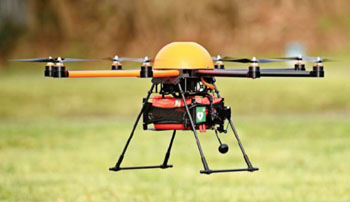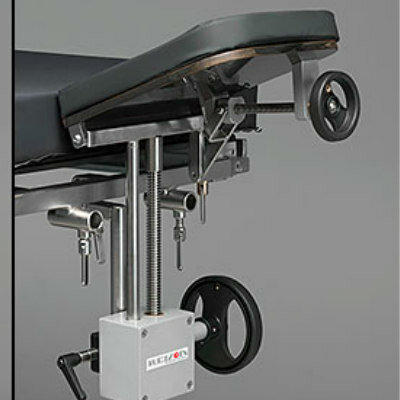Deficopter May Save Lives Faster Than an Ambulance
By HospiMedica International staff writers
Posted on 02 Sep 2015
A novel helicopter drone, the deficopter, delivers a defibrillator to an emergency site so that first responders can perform lifesaving cardiopulmonary resuscitation (CPR) immediately.Posted on 02 Sep 2015
The Karolinska Institute (Stockholm, Sweden) and the German Aerospace Center (DLR; Cologne, Germany) are conducting studies to explore if the deficopter could help save lives by delivering an automatic external defibrillator (AED) to a cardiological emergency site faster than an ambulance can. To do so, they conducted simulations in two test areas in the Stockholm archipelago, for which historical data that included both the locations of cardiac arrests and the duration between emergency calls and the arrival of ambulance were documented.

Image: The Deficopter in mid-flight, with the defibrillator attached (Photo courtesy of DLR).
The deficopter was launched from different rescue centers under supervision of pilots who kept it in line of sight. At arrival at the destination, the portable AED, a product of Schiller (Baar, Switzerland), was dropped down, picked up by the first responder, and applied to a cardiological emergency dummy. Initial tests showed that for the deficopter to reach the location of cardiological emergency earlier than an ambulance certain conditions needed to be improved, including flying permits, weather conditions, the interface between deficopter and the emergency call center, and flight characteristics.
The AED selected for the project is the Schiller FRED Easyport, an external defibrillator that weighs just 490 grams, but still meets all the necessary requirements of a modern AED. The pocket-sized device is based on multipulse biowave defibrillation, a myocardium-saving biphasic impulse that delivers energies of only 90 and 120 joules, thus causing much fewer ST alterations, as well as triggering significantly less creatine kinase (CK) and myoglobin release into the bloodstream.
The deficopter is under development by drone manufacturer Height-Tech (Meerbusch, Germany), software company Delta Computer Management (Bönen, Germany), which is developing a smartphone app to control the deficopter, and Swiss rescue service Solothurner Spitäler.
Related Links:
Karolinska Institute
German Aerospace Center
Schiller














